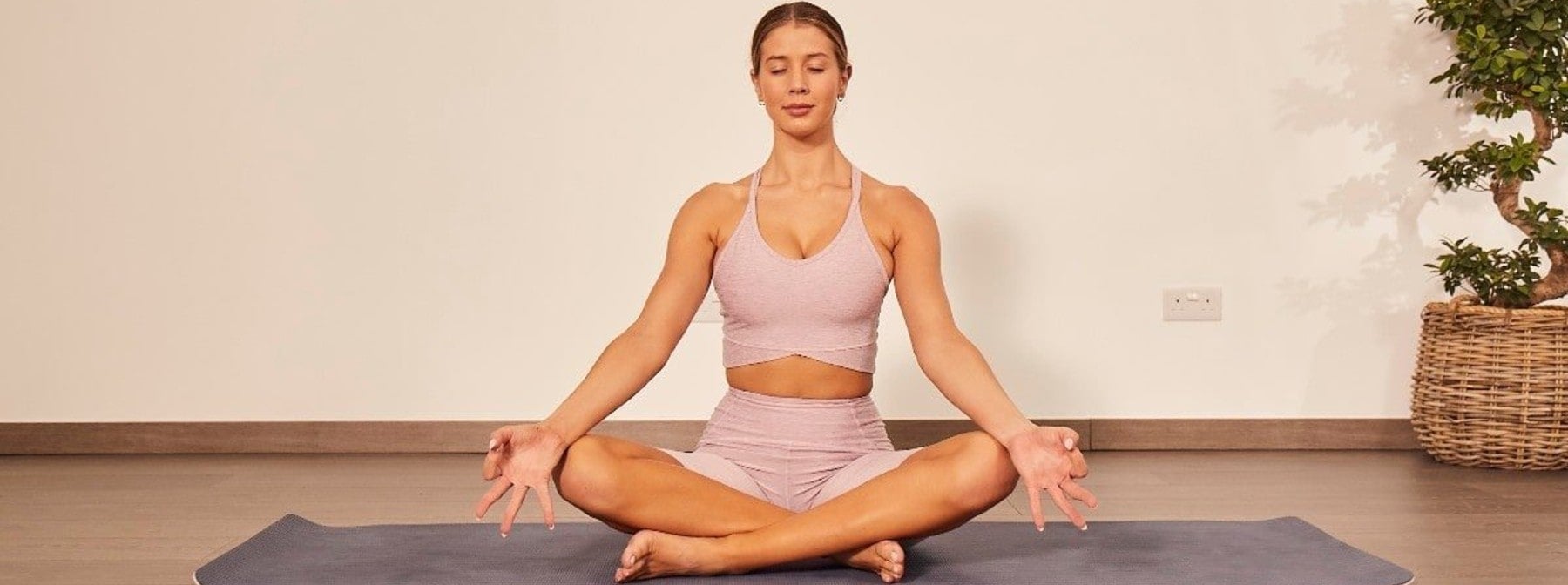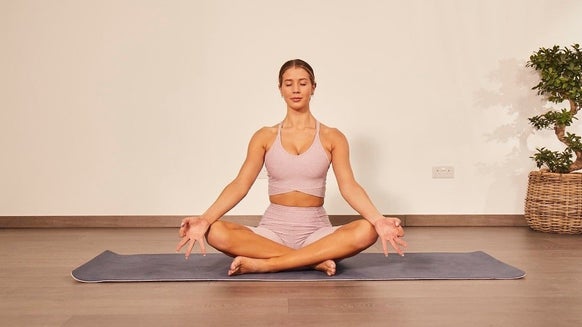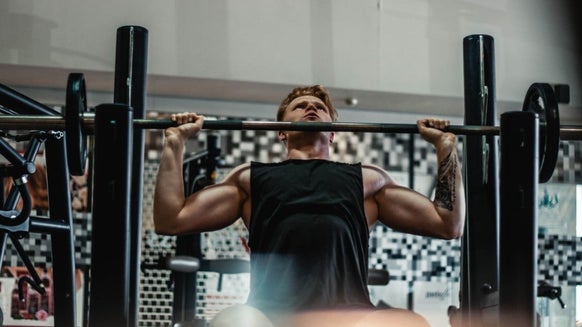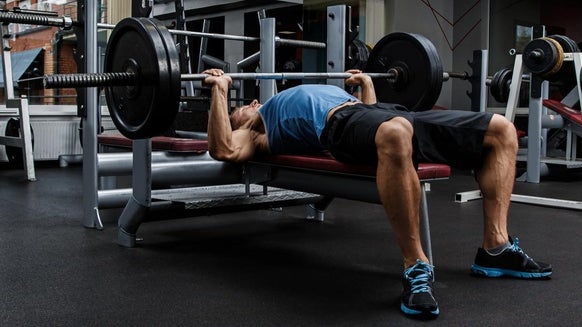Exercise Or Mindfulness For Better Mental Health? | Cambridge Study Has The Answers

Being in the midst of yet another lockdown, on top of it being one of the coldest and darkest months of the year, it’s no surprise that many of us are struggling to stay at the peak of mental wellness right now.
If you’ve read up on anything to do with mental health in recently, then you’ve probably come across mindfulness. It’s being taught everywhere from schools to offices to universities across the world as one of the best ways to deal with stress, anxiety, and everything in between, but could it have a rival?

The Study
According to a new study by Cambridge University, mindfulness isn’t necessarily the best way to boost your mental health.1 In fact, there could be many different options that are just as effective in promoting good mental health.
The researchers reviewed 136 studies from around the world that had looked into the most effective methods for improving mental health. Out of the 11,000 participants, they wanted to see if mindfulness would win out in a non-clinical, everyday environment, but the results were quite different.
In fact, they found that while in most cases, mindfulness was found to be better than doing nothing, in over 1 in 20 of the trials, mindfulness didn’t work. No need to despair, though, as there are other solutions, according to the researchers.
They found that the lauded mindfulness, in most cases, was no better or worse than other methods for improving mental health, such as exercising.
So, what does this mean?
If you’re struggling to get mindfulness to work for you, then try something else instead. Whether that’s taking a daily walk, or performing a few HIIT workouts per week, or even taking up something creative.
The leader of the study, Dr Julieta Galante, has explained that while they could find very little to suggest mindfulness was better than other practices at improving mental health, that there is plenty to support the mental and physical benefits of exercise.
Oxford University's study into 1.2 million Americans even found that there was a positive impact of just 2-6 hours of exercise a week on mental health.2
Just like with everything else to do with our bodies, what makes us feel better and perform at our best is unique to each individual. Chances are, if you’re into Myprotein, then you already understand the power of a good workout for your mood!
Physical exercise can help to improve an individual’s mental health by facilitating a reduction in anxiety, depression, negative moods and improving self-esteem and cognitive function. Some form of physical exercise is recommended for all individuals due to the multitude of positive mental and physical benefits to be had.

How does physical activity benefit mental health and wellbeing?
As humans, we are built to move. Physical exercise can contribute to improvements in mental health as it facilitates the release of endorphins and hormones that make you feel good. While mental health issues are often complicated and complex, physical exercise can help to mitigate at least some negative feelings by helping to manage stress, improve self-esteem and improve sleep quality and duration which in turn has further positive effects.
Dedicating some time towards your physical health and fitness can also lead to the formation of positive habits which will further improve your mental health, such as improved nutrition and better sleep quality, timing and quantity.
Exercise helps you to feel good
Exercise can improve your mood
Physical activity can improve your response to stress
Exercise can improve your ability to think and remember
Which exercises are best for mental health?
1. Walking or Running
Walking and running are forms of steady-state exercise that elevate your heart rate for an extended period of time, challenging and developing your cardiovascular system. There are lots of different factors that contribute to how this type of exercise may help to improve your mental health, such as being outdoors/in nature and exposed to daylight, which is proven to improve mental health and also sleep quality, increasing your fitness and altering your body composition which may result in improved self-esteem and they release endorphins that act as a chemical reward system in your brain, making you feel good.
Not forgetting the social aspect ( if you’re able to get out with a training partner that is). Then that offers some socialisation and respite from what may otherwise a relatively secluded lockdown for some individuals.
If you are running solo, then that may be the perfect time to focus on mindfulness activities – focusing solely on the movement of your body and breathing, ultimately helping to manage stress and clear your mind.
2. Resistance Training
Resistance training offers many of the same benefits as running, such as releasing endorphins, improving your self-esteem by bettering your body image and it can also provide a good way to socialise (although, we appreciate this may be slightly more limited than usual at the moment).
It’s unlikely that you’ll be doing much resistance training outside in the snow, but this form of exercise still strongly benefits your sleep by helping to improve the quality and quantity of sleep you get – meaning you will actually recover better for more training!
3. Team Sports
You may be noticing a trend by now, but yes, participating in team sports can also facilitate all of the above; getting outside, exposure to daylight, the release of endorphins, socialisation, increased self-esteem and improved sleep quality. Participating in team sports may be difficult to achieve at the moment, for obvious reasons, but even if you enjoy more solo sports like weightlifting or running, then it’s worth getting involved with a local club, as the sense of community, achievement and allow you to integrate after the slog of lockdown.
Joining a local club for your favourite sport may even be the boost you need to take the next steps in your training, as they’re often packed with fanatics full of knowledge and coaches ready to share information – and progression in your sport can again help with feelings of self-efficacy and improved self-esteem.

4. Yoga
Frequently Asked Questions
How does exercise help anxiety?
Exercise is as beneficial for anxiety as medication due to exercise releasing feel good endorphins within the body. As little as ten minutes a day can begin to improve your mood and relieve signs of anxiety.
How long does it take to see the mental health benefits of exercise?
Overall, not long. You could hit the tarmac and instantly feel great or, it may slowly creep on as you progress but, don’t lose faith and don’t fall for the instant high and stop. Continuously hitting the exercise will improve your mental health in the long term.
How much physical activity should I be doing?
If you’re starting new or returning, start off with three sessions a week, introduce a rest day after two sessions. This allows you to get results, progress and introduce a routine of exercise. Any less, any you may find yourself dropping off. As you move forward, keep it limited to five sessions a week at the most.
How to get started
Introduce yourself to a team sport and integrate into a team, making new friends and enjoying fitness at the same time. It may seem silly but, YouTube. If you get a spare moment, browse YouTube for exercise and sports, Functional Fitness for example. You may stumble across something you like the look of.
Start off slow! Introducing yourself into something new is exciting but ease yourself in to get comfortable.

Take Home Message
Physical exercise provides numerous physiological benefits that help to improve a person’s mental health, which in turn can result in the formation of other positive habits such as improved diet, sleep timing, increased exposure to daylight and social interaction – all of which are proven to at least contribute to improvements in mental health. Progression in your sport or training can also give a sense of daily purpose and offer something to work towards.
If you’re struggling right now, remember you’re not alone and that there’s a way out. Feel like mindfulness could be the answer? Then give it a go! But don’t be afraid to reach out for professional help when you need it too. Personally, we find there’s nothing better than throwing a few weights around to lift our spirits...

1. Galante, J., Friedrich, C., Dawson, A. F., Modrego-Alarcón, M., Gebbing, P., Delgado-Suárez, I., … & Jones, P. B. (2021). Mindfulness-based programmes for mental health promotion in adults in nonclinical settings: A systematic review and meta-analysis of randomised controlled trials. PLoS medicine, 18(1), e1003481.
2. Chekroud, S. R., Gueorguieva, R., Zheutlin, A. B., Paulus, M., Krumholz, H. M., Krystal, J. H., & Chekroud, A. M. (2018). Association between physical exercise and mental health in 1· 2 million individuals in the USA between 2011 and 2015: a cross-sectional study. The Lancet Psychiatry, 5(9), 739-746.





